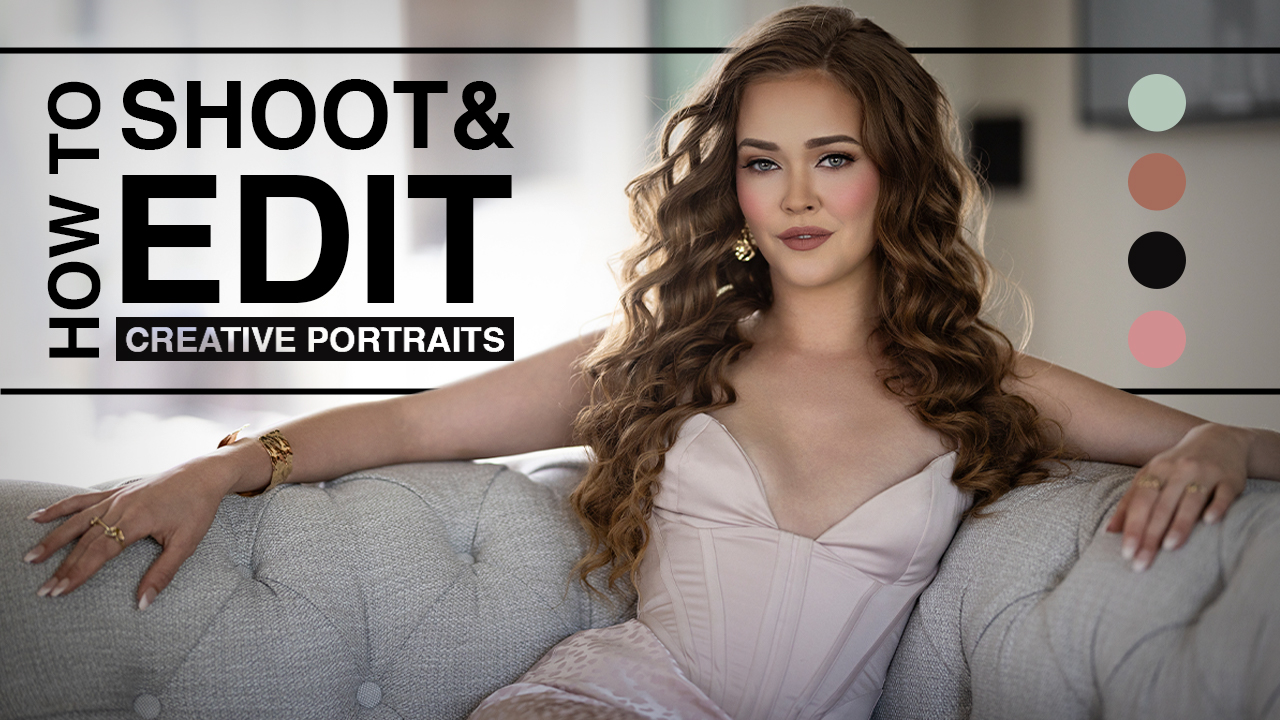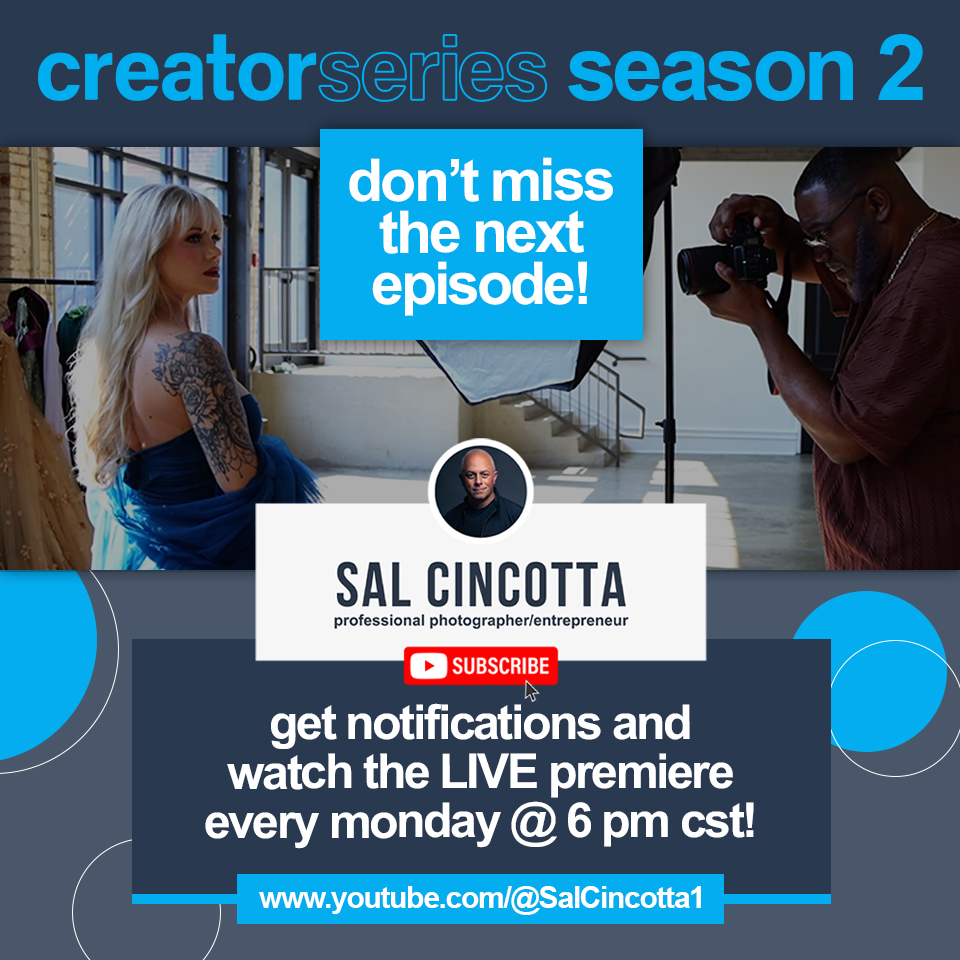Sustaining Growth and Freedom With a Hybrid Studio with Blair Phillips
When we started building our photography business 12 years ago, the market was completely different. I remember assuming that once you were established, you never had to worry about making a living. That was then and this is now. With this industry changing daily, you embrace change, continue to find your niche or hang the camera on the wall. The toughest part of this business is not really knowing what the next year has in store. I have found photography to be more enjoyable now that I have learned to forecast revenue, giving me more of a financial guarantee from year to year.
Just a few short years ago, we accidentally stumbled into a whole new market. This market is not for the unmotivated or lazy. It began with a few high school athletes who were fed up with their sports pictures. A few of the guys who came in wanted a more current-style picture to commemorate all their hard work on the field. I met them at the school, took a second to add some really good lighting and created an image that their parents can be proud of.
Seeing how they reacted sparked an idea that I should do the whole team. The parents got onboard and went to bat for us. The rest is history. That led to us photographing all of the sports for the school, then all the high school sports in two counties. The signed contracts gave my business the confidence in knowing there was a guaranteed range of money coming in next year.
We formed a whole different division within our company to handle the volume business. We already had a very good name in our community. Our reputation comes with a price tag in my market. To be competitive in volume photography, I knew I was going to need similar prices as the other volume companies. This is the main reason we formed the division. We did not want to damage our brand at the studio by offering the same quality in the studio that we do at schools. We did not want a big disconnect in differentiating the two. We used our existing company name but added “Schools Division” to it.
In studio portraiture, you’re unlikely to see all your clients year after year. This leaves you with the feeling of having to dig for business month after month. We have no problems having two businesses and brands under one roof.
Even though the prices of our volume work versus our portrait work are vastly different, the quality of the images is exactly the same. Most volume photographers shoot their images with entry-level cameras and equipment. I am probably one of the few who uses full-frame sensor cameras. Some may consider that overkill, but I consider it an absolute necessity.
When it comes to printing, I spare no expense either. All of my sports and school volume goes through my normal professional printing lab. For lighting, volume photography is generally flat and lacks appeal. We’re all used to seeing a couple of umbrellas in front of the subject and a hair light. We always create a ratio of lighting on our subjects. Flat lighting is never welcomed or executed under our business and brand. These types of images fall under something of an obligatory sale during a child’s life. Volume photographers have come to understand this, and the lack of effort shows. Adding a higher quality of printing, posing and customer service will raise your averages. This will also get parents on your side, and they must be happy.
Once we got a taste of volume photography by photographing sports, we wanted more. I never imagined having the desire or ability to photograph underclass and seniors for the yearbook. That would mean I would have to photograph 1,000 students in a very short time at the school. The earning potential outweighed the fear of being able to execute all of those images. The thought of several hundred students bringing me an order form with payment enclosed was a great motivator.
The first step is to have dynamite customer service. It has to be phenomenal, or they will move on with someone else. You need access to skilled customer service people you can train to be button pushers. You can train nearly anyone to push a button, but it is much harder to train someone to have great people skills. All of the lights and equipment are already set up and never change throughout a shoot.
Our volume business is only as good as the employees we grow. A sure way to maintain great employees and a rock-solid work environment is to pay your staff really well. You cannot do it all by yourself. You will hit some bumps along the way. You will make mistakes. It is how you handle and learn from those mistakes that determines if you will make it in the volume world.
Volume photography is a repeatable business model, but it can be taken away in the blink of an eye. There are always other companies trying to snatch it away from you. For this reason, communication with all of your jobs must remain open and constant. Tell clients that if things are not going perfectly, they should give you the opportunity to correct it. The office staff are the gateway to securing and maintaining these jobs. Swing by from time to time with a small gift or treat to show your continued appreciation. They will remember this and continue wanting to help you, should you need anything.
With online tutorials, classes and camera clubs, nearly anyone can buy a camera and create a decent-looking outdoor portrait. The volume business is the exact opposite. Not everyone has the ability, aptitude, equipment or ability to do it. There’s way less competition than in the custom portrait world.
Schools provide you access to hundreds of paying students in front of your cameras. Sometimes this may happen multiple times a year. These are students you really did not have to do a ton of marketing for. The school provides you the footprint, electricity and often people to help manage a crowd.
The least you can do is share some of your profits. The area you live in determines the commission rate you will be expected to pay to the school. Survey the competition and ask what the school has received in the past. I never get involved in a commission rate war with other companies. This does nothing but mess up the market. One of the most important things you can do to retain a school is to deliver its commission check as soon as you are finished processing everything. They do not like to wait for their money. Picture commission may be the only extra revenue a school receives.
Another key is not to drag your feet on processing everything and getting the finished product back to the school. Turnaround times need to be expressed up front with a very attainable time frame. You would much rather deliver early than late. Express your promise and make good on that promise, with no excuses. The school will have to answer to lots of parents when something is not right with their pictures, and schools desperately want to avoid that.
I never imagined having a hybrid studio that mixes two totally different ends of the spectrum, but we are living proof that it can be done. It is allowing us much more freedom than we have ever had. Sustaining growth is very appealing to me these days, so we will continue the climb with both business models.




